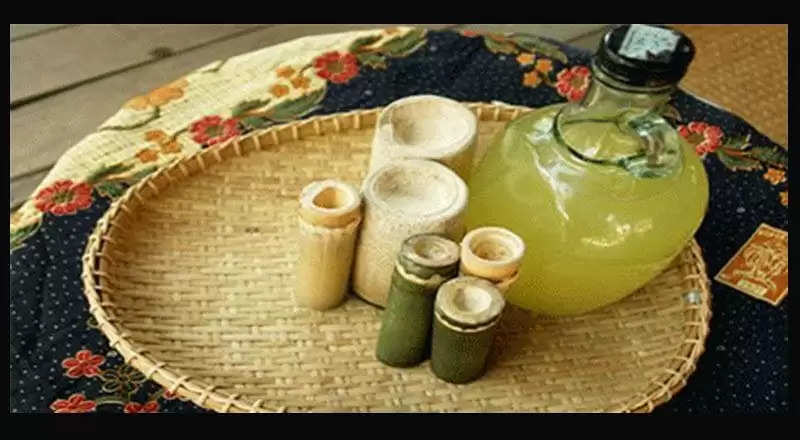Meghalaya, Sikkim’s ethnic alcohol drinks could be the next big thing!

GANGTOK, Sept 30, 2017: Traditional home-based brewing of ethnic alcoholic beverages in Sikkim and Meghalaya can be transformed into a robust industry if adequate scientific and technical boost is provided, researchers said.
Researchers from the Sikkim University, Gangtok and National Centre for Microbial Resource, National Centre for Cell Science (NCCS), Pune, based their conclusion after finding a rich diversity of teeming microbes in starter cultures – a preparation that's used to kick-start the fermentation process for ethnic fermented food.
The study focused on profiling the microbial community composition of "marcha" and "thiat" which are traditionally prepared ethnic starter cultures of Sikkim and Meghalaya using next-generation sequencing (DNA sequencing).
These traditional practices preserve native microbes in the form of dry, flattened or round balls for alcoholic beverages and are common in ethnic communities of South-East Asia, including the Himalayan regions of India, Nepal, Bhutan and China.
In this way, these techniques also protect vast biological genetic resources, which may disappear, notes lead researcher Jyoti Prakash Tamang, Dean, School of Life Sciences, Sikkim University, and his team from Sikkim University and NCCS, Pune.
Published in the Nature Scientific Reports in September, this is the first report on complete microbial community profile of traditionally prepared amylolytic starters of India using Next Generation Sequencing (NGS) technique.
Amylolysis refers to the conversion of starch into sugar by the action of acids or enzymes such as amylase. It is used in the brewing of alcohol from grains.
"Ethnic fermented beverages and alcoholic drinks have the potential to develop the beverage industry if proper scientific and technical support is applied to the existing indigenous practices of home-based alcoholic fermentation," said Tamang, Department of Microbiology, Sikkim University.
"Marcha" is prepared from soaked rice with some wild herbs, ginger and red dry chilli and one to two percent of previously prepared "marcha" powder. The final product after grinding, fermentation and sun drying are round or flattened balls that are used as starters for production of cereal-based ethnic fermented beverages such as "akodo ko jaanr", "abhaati jaanr" and "araksi" etc.
During "thiat" preparation, soaked glutinous rice is ground with leaves and roots of a wild plant. It is mixed and made into the dough by adding water. It is used to ferment alcoholic beverage locally called "kyiad" in Meghalaya.
Tamang, a pioneer researcher in microbiology of fermented foods and beverages of India, Nepal, Bhutan and many Asian countries with 31 years of research experiences, says the analysis showed in terms of bacterial content Proteobacteria is the most dominant in both "marcha" (91.4 per cent) and "thiat" (53.8 per cent) followed by Firmicutes and Actinobacteria.
In the fungal community, Ascomycota was dominant in the starter cultures like in Korean and Chinese starters.
IANS

















